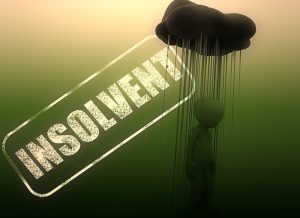Ok, it doesn’t apply to all director’s overdrawn loan accounts but here is a little case study, to show how to get the Government to repay a directors loan account in liquidation.
A director owed the Company £10,000. The director also had an employment contract and was paid through PAYE. On liquidation the director/employee is made redundant and has claims for arrears of pay, holiday pay, notice pay and redundancy. As he had been with the company for some time, these claims added up to just over £10,000.
If a company goes into liquidation, the Redundancy Payments Service step in to make certain payments to employees that the company cannot pay. The RPS then becomes a creditor in the liquidation instead of the employee.
Before the RPS pay out the claims to the directors they must deduct any sums that the director owes to the company. So, the director gets his claim minus the £10,000 that he owed to the company and the directors loan account in liquidation was treated as repaid. You might think that the RPS would then pay the sum deducted into the liquidation so that the other creditors would benefit from the realisation of the loan, but they can’t.
What is actually happening is that the RPS is applying the automatic set-off insolvency rule. The director is both a debtor (owes his director’s loan to the company) and a creditor (for his employment claims) and must net the two amounts against each other – there is no choice it is automatic setoff.
In this case, I can no longer collect the debt due from the director because his employment claim exceeds the amount he owes the company making him a net creditor. So, in other words, the Government has repaid the director’s loan and the other creditors don’t even benefit!
Once a company is in liquidation, the automatic setoff rule also applies to other mutual trading. A supplier that also buys goods from its customers can use the rule to offset debts they may owe to a company in liquidation against amounts they are owed. Likewise, with banks, any accounts in credit can be offset against loans, including bounce back loans.
The way insolvency rules work can sometimes appear odd and present opportunities and risks that need to be understood before embarking on a formal insolvency process. As we enter a period of what is shaping up to be an increasing number of company insolvencies, it is important to take appropriate advice if your company is facing insolvency. The Government has recently legislated the power to investigate dissolved companies so even those directors who choose to do nothing hoping that Companies House will simply dissolve the company may not escape scrutiny.


